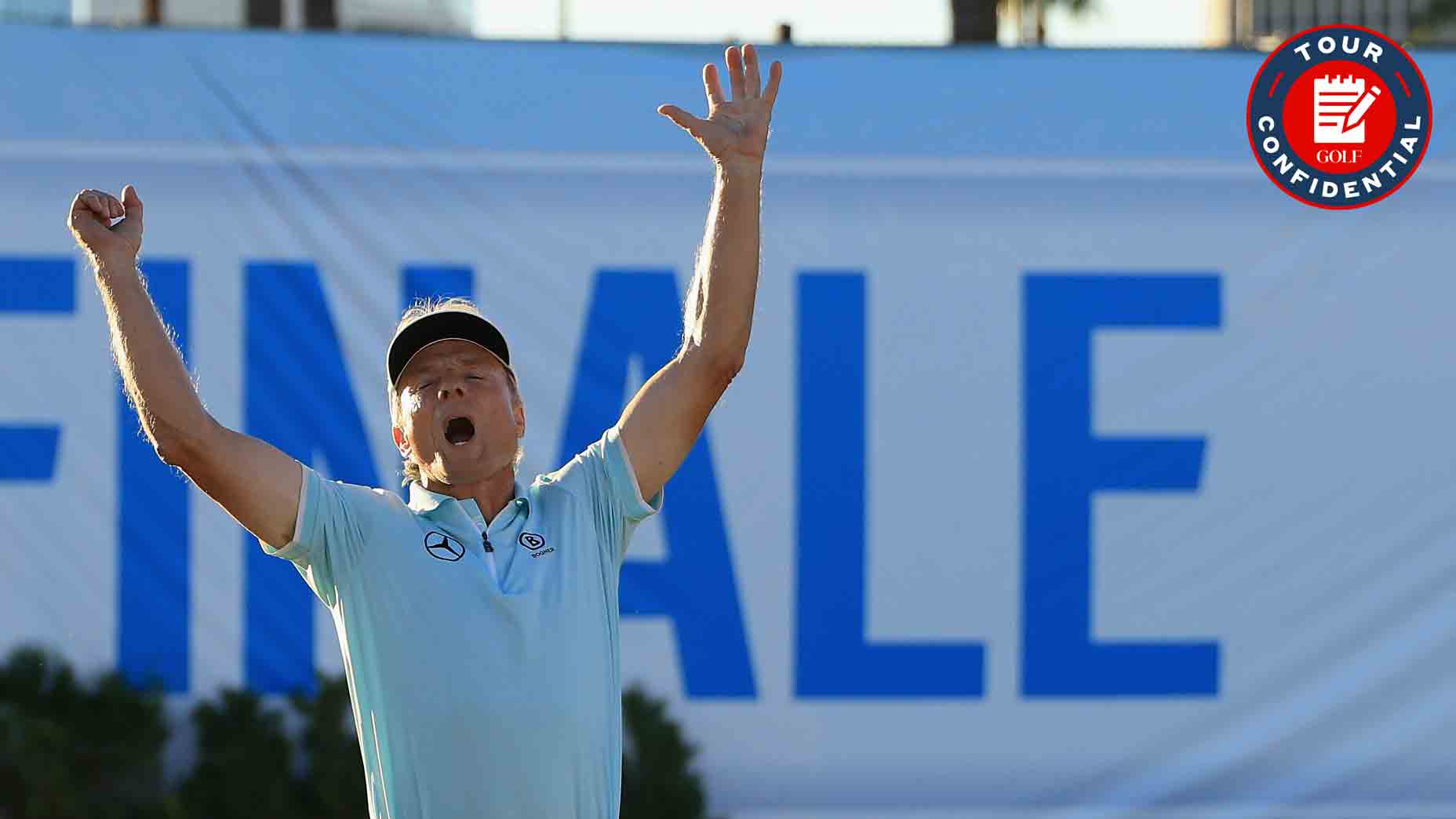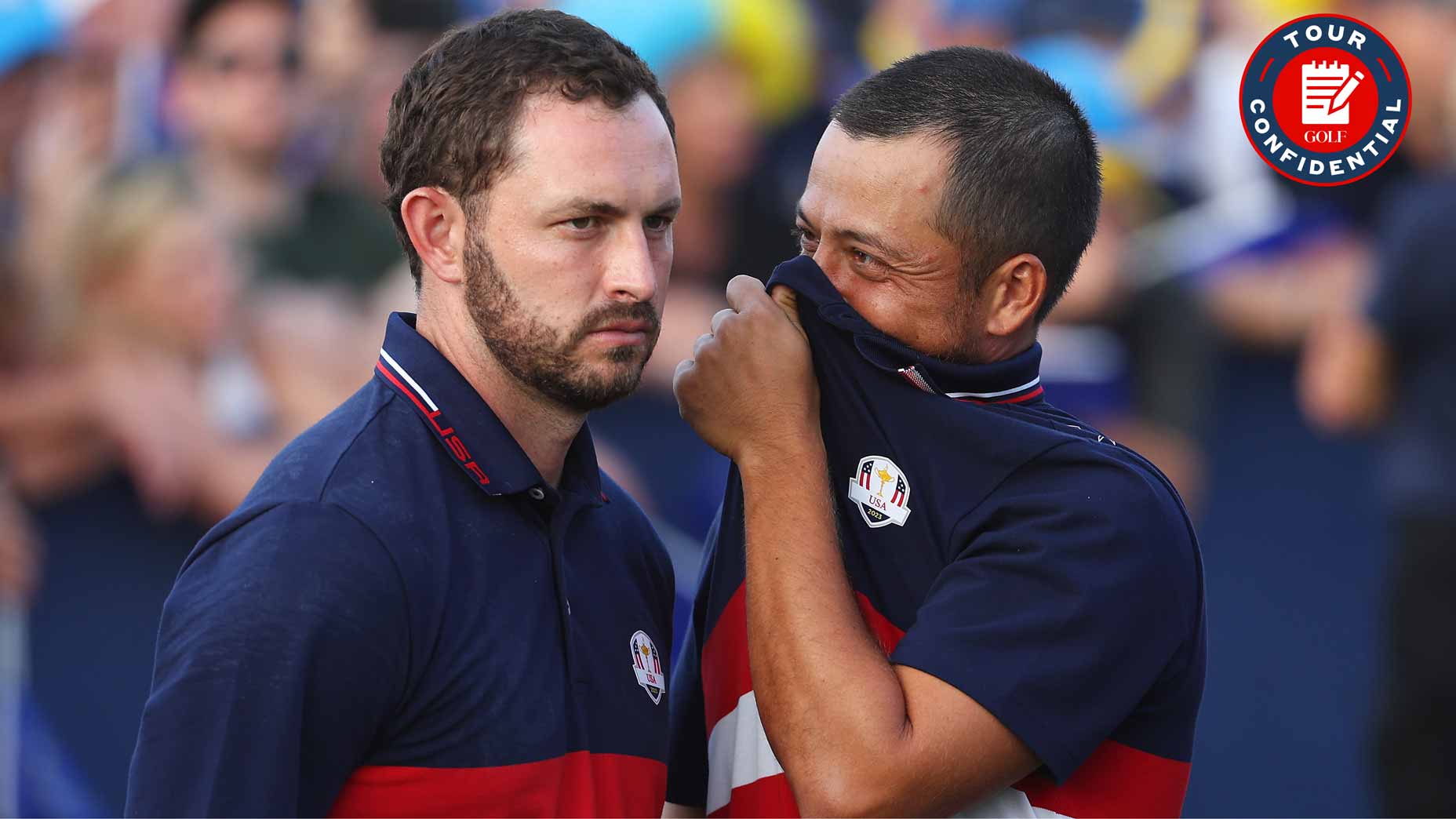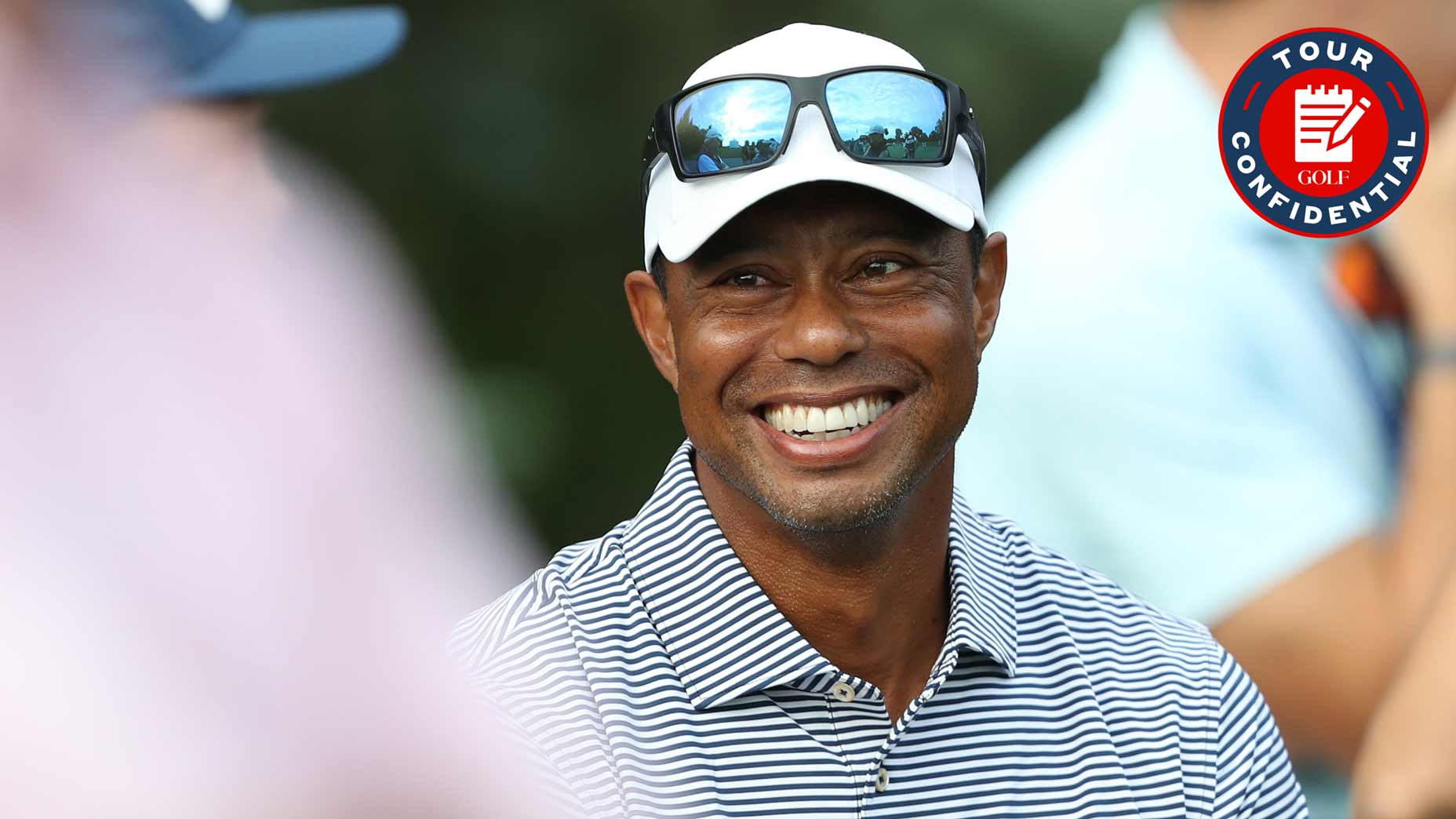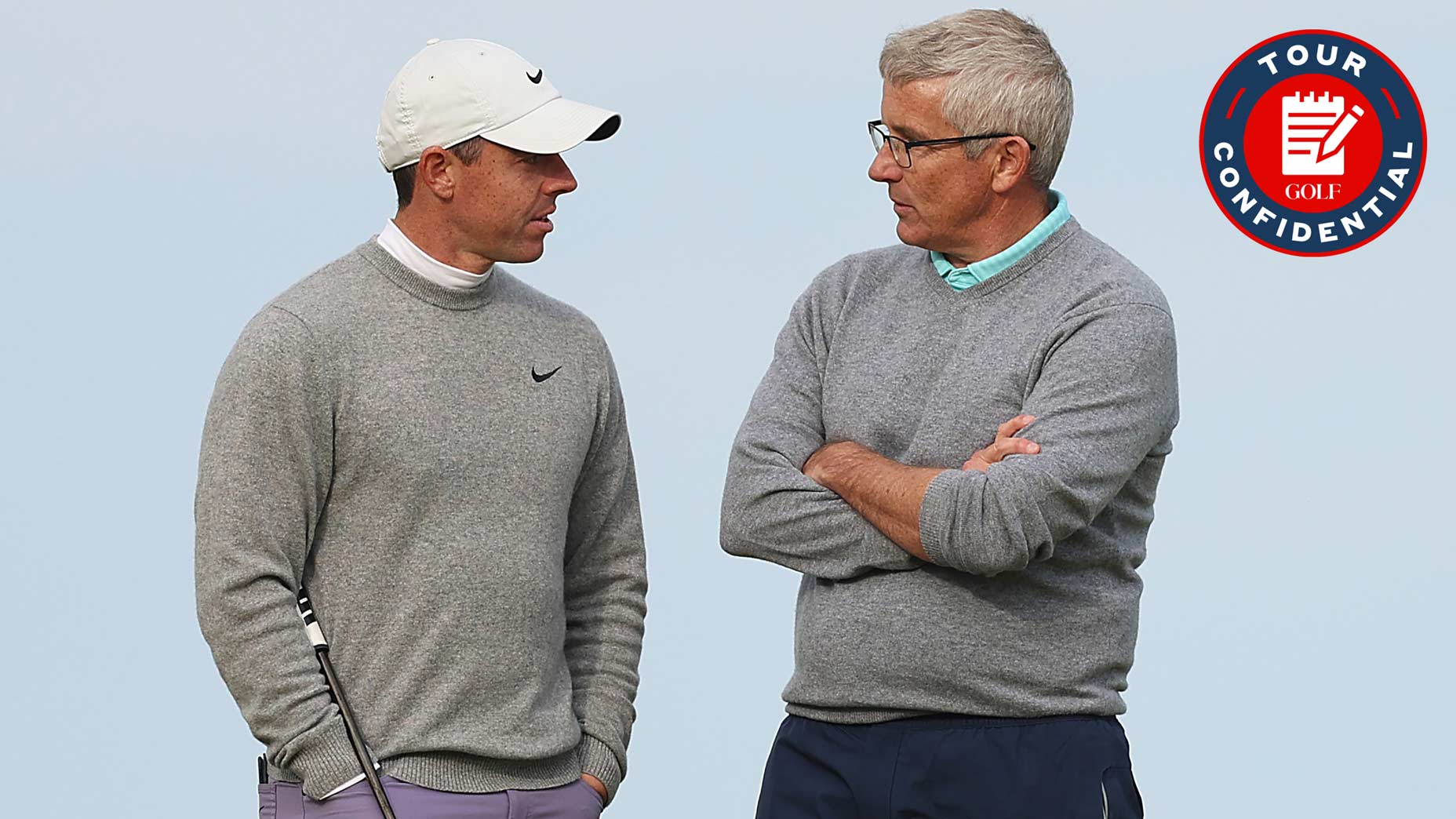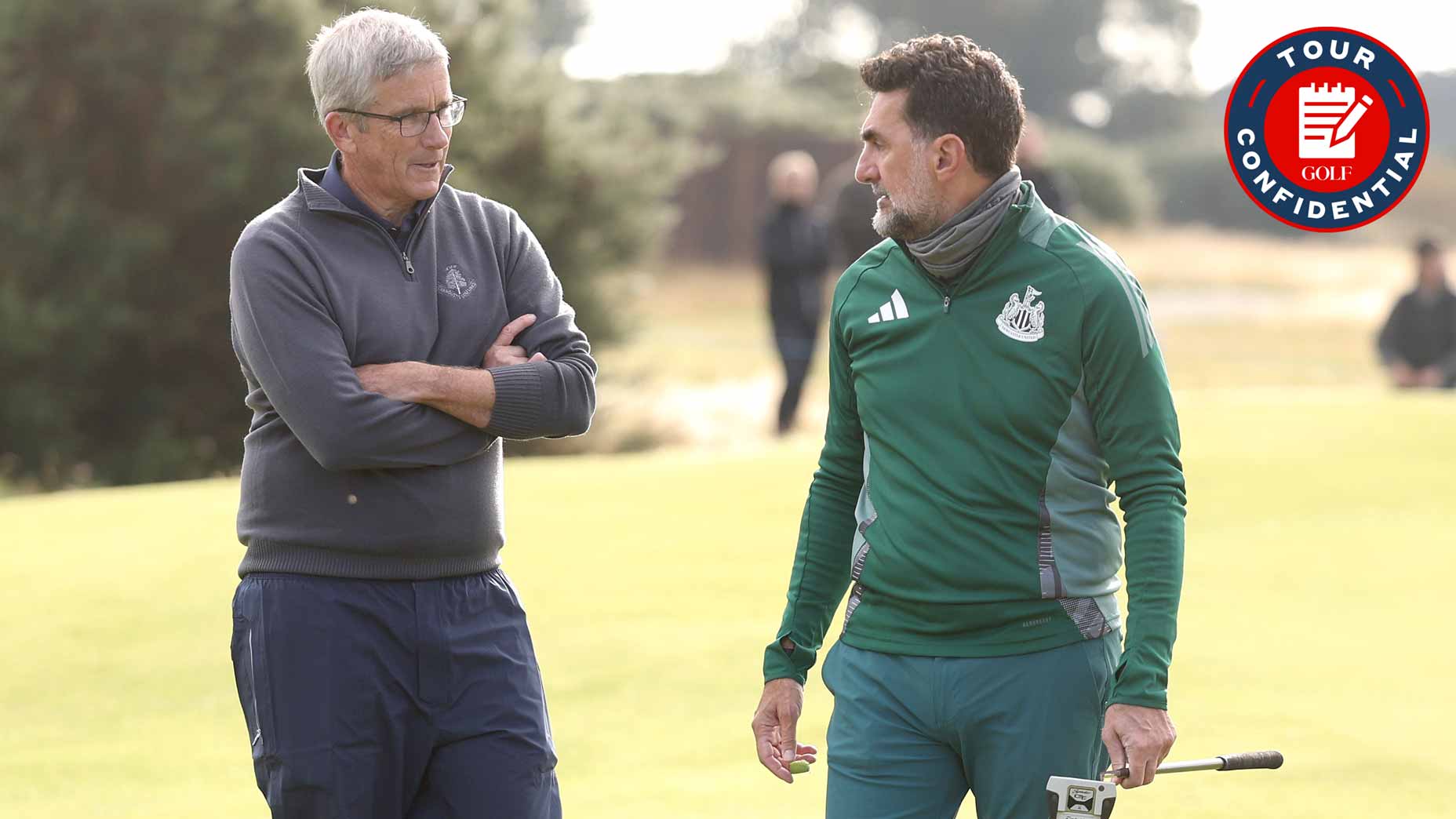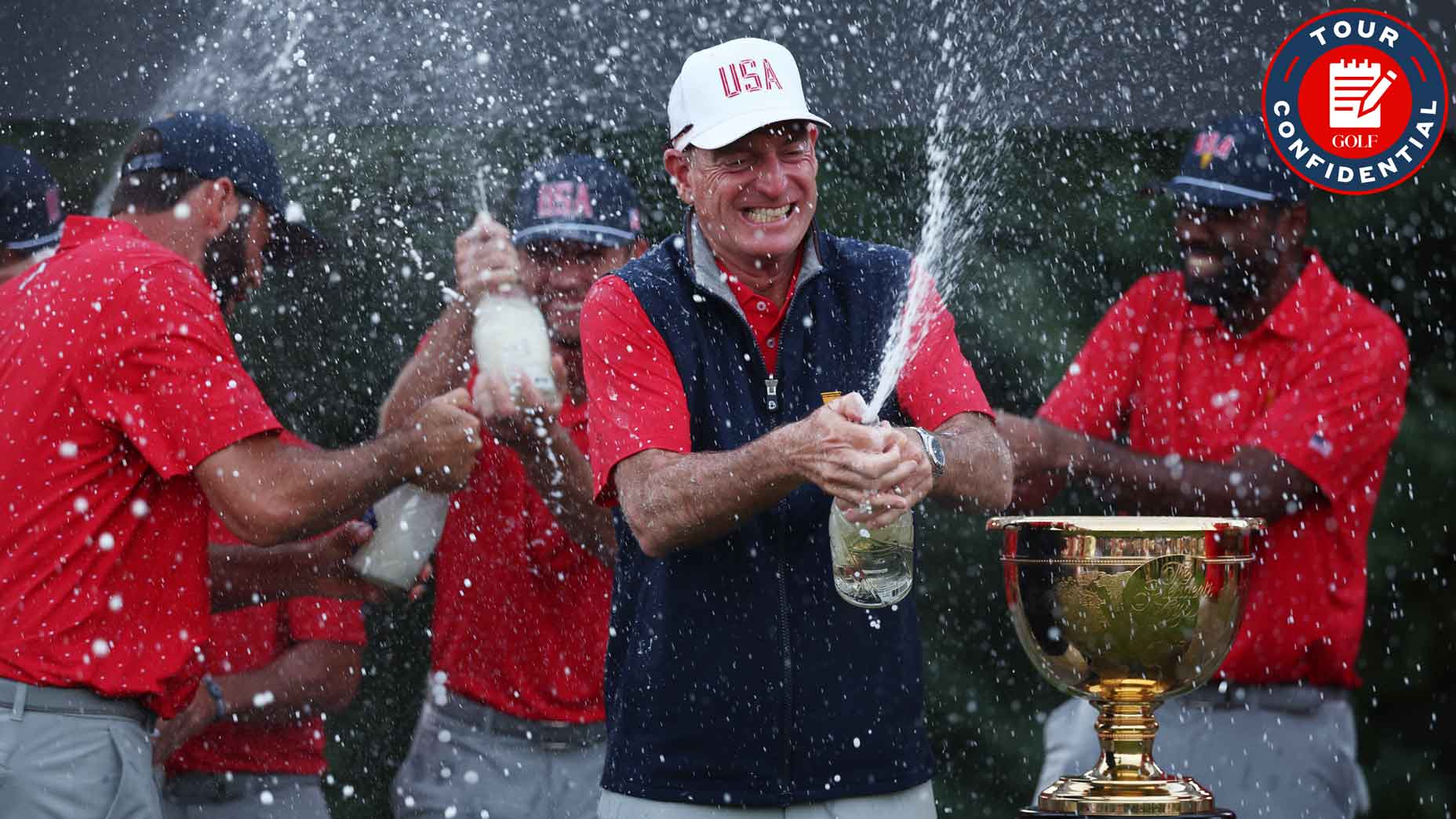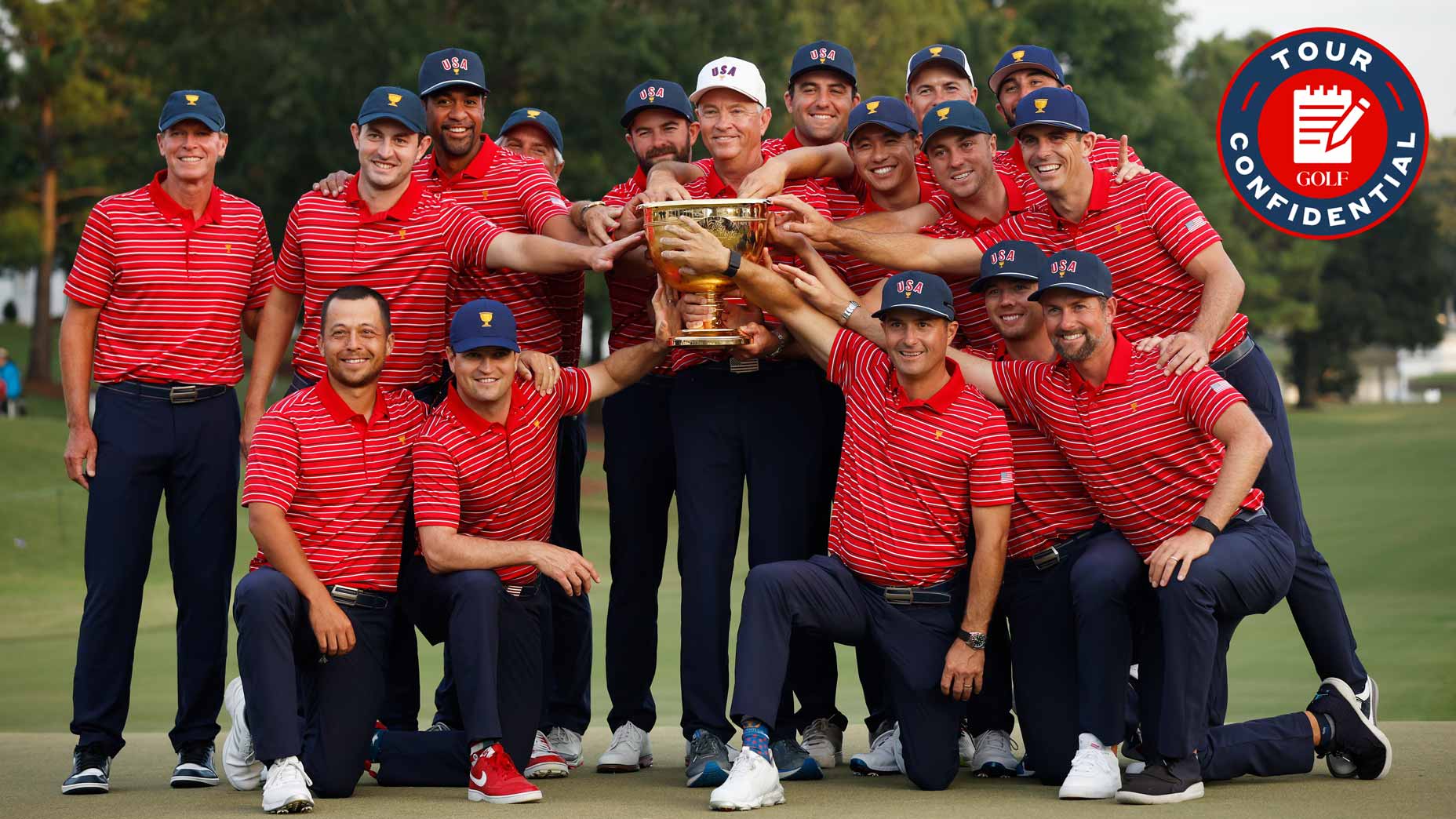Tour Confidential: A Player of the Year controversy? Plus Rory’s reversal and Kisner’s debut
- Share on Facebook
- Share on Twitter
- Share by Email
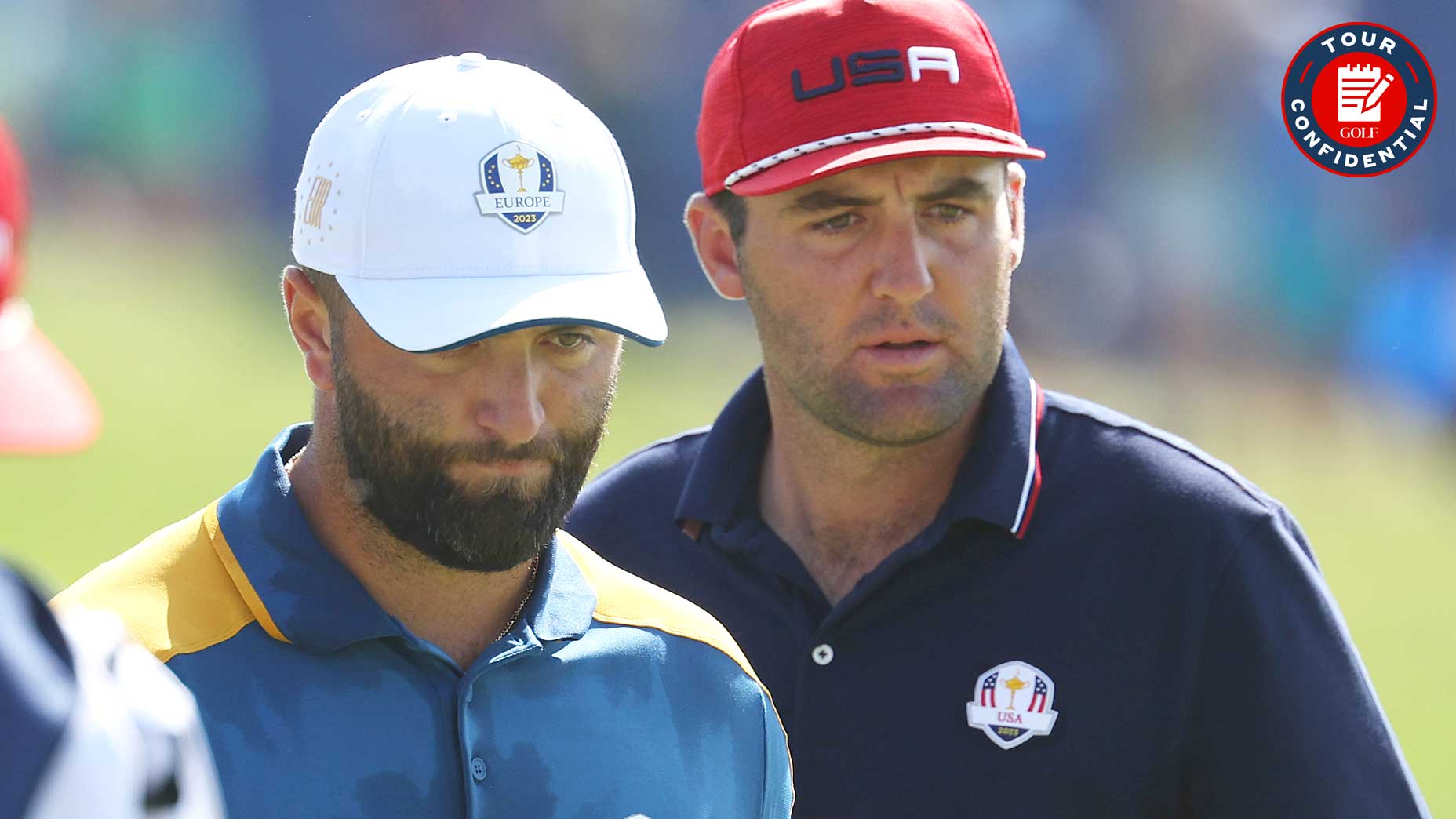
We discuss the PGA Tour's Player of the Year Award, Rory McIlroy's change of heart, Kevin Kisner's TV debut and more.
Getty Images
Check in every week for the unfiltered opinions of our writers and editors as they break down the hottest topics in the sport, and join the conversation by tweeting us at @golf_com. This week, we discuss the PGA Tour’s Player of the Year Award, Rory McIlroy’s change of heart, Kevin Kisner’s TV debut and more.
The PGA Tour made its Player of the Year announcement, yet in a somewhat surprising decision it was Scottie Scheffler who won over Jon Rahm. Scheffler won The Players and Phoenix Open last year and put up gaudy scoring numbers and top finishes, but Rahm won four times, including the Masters. The award is voted on by the players, with Scheffler earning 38 percent of the vote. (The Tour said voting took place between Dec. 1-15; Rahm announced he was leaving for LIV Golf on Dec. 7.) Rahm was previously voted Player of the Year by the Golf Writers Association of America, so what did the players see that the golf writers didn’t? Did Rahm leaving for LIV Golf have anything to do with it?
Josh Sens, senior writer (@JoshSens): As impressive as Scheffler’s season was, Rahm clearly had the edge by the usual criteria for this award. I think it’s very safe to say Rahm’s leaving for LIV had a lot to do with it. The impulse of, ‘He’s leaving, so why should he get an award?’ But it is supposed to be a retrospective honor, based strictly on what transpired last year. So not choosing Rahm mostly just seems off-base and petty.
Ryan Barath, equipment editor (@RDSBarath): I’ve heard some folks like Brandel Chamblee say that money could have been the determining factor. I’m willing to bet that there aren’t many players that would take Scottie’s season over Rahm’s considering he earned himself a lifetime invitation to Augusta National, so in this case I think politics came into play big time.
Josh Berhow, managing editor (@Josh_Berhow): The Tour doesn’t release the number of players who voted for these awards, but it’s important to remember, historically, how few actually participate. For a story I wrote about the 2019 Player of the Year Award (Rory McIlroy edged Brooks Koepka), the Tour told us typically 45 to 60 percent of players actually vote. Maybe the players gave more credit to Scheffler’s incredible strokes-gained numbers and mega-consistency. But it also could have been a parting jab at Rahm, because even early in the voting window (before Rahm went to LIV) it wasn’t exactly a well-kept secret he might be leaving. I wasn’t in Hawaii this past week, but at least one journalist on-site kept asking players how they categorize a successful season. The answer was pretty unanimous: wins. Can’t fault Scottie, though. He had an amazing season too.
In what seems to be a shocking reversal, Rory McIlroy has apparently softened his stance on LIV Golf, telling Gary Neville of The Overlap he was “maybe a little judgmental of the guys who went to LIV Golf at the start” and that LIV has “exposed the flaws in the system of golf,” among other things (you can watch it here). Why the sudden about-face from McIlroy?
Sens: I’m not sure it was really a “sudden” about-face so much as the gradual realization/resignation that LIV is here to stay, or at very least the Saudis are, and that the pro game has very real issues it needs to address. I’m sure McIlroy will catch shrapnel for being a “waffler” or a “hypocrite” or [insert your favorite social-media insult]. But more than anything, he deserves credit for being open-minded and thoughtful enough to reassess his views based on the evidence he sees unfolding around him. That’s a strength, not a weakness. We have enough people in this world who have dug their heels in on everything and refuse to budge, no matter how many contradictory facts slap them in the face day after day.
Barath: Josh hit the nail on the head here. No matter what the outcome is going forward here, Rory’s tough stance early on put him in the crosshairs of criticism from both sides. I believe that at this point he has come to the realization that as much as he probably wanted things to stay as they were, it’s just not going to happen and being public about his opinion shows that he’s ready to end all the fighting.
Berhow: Yeah, the writing is on the wall. I’m not sure if Rory was essentially waving the white flag or actually just changing his opinion based on what’s happening in the golf world, but the future of golf has the PIF (and LIV Golf) deeply involved. That’s not going to change soon.
Mackenzie Hughes has been among the most vocal pros regarding the disorder in the game, and he spoke at length on the topic at The Sentry. “How do you make everyone happy?” he asked. “You can’t. The way forward I hope is smoother, but I know it will be messy before it gets smooth again.” So, what is the way forward? There’s a likely merger between the PGA Tour and LIV Golf, but does that mean they’ll get along in the future? How do you see these leagues co-existing post-merger?
Sens: Mackenzie Hughes comes off as a thoughtful guy and a likable player. He could also walk through Times Square — and down most fairways, frankly — without being recognized. Since 2017, he has been paid more than $14 million in tournament prize money and who knows how much else in off-course deals. He has already earned what people these days like to call “generational wealth.” The idea that he and players of his stature might somehow be underpaid is ridiculous (the idea that the big stars might be somehow underpaid is also tough to swallow). Public school teachers are underpaid. Tour pros aren’t. It’s hard to predict what shape the future will take exactly, but it seems that would have to include: 1) a small number of events that attract all or nearly all of the biggest names, regardless of tour affiliation; 2) a larger number of low-wattage events with shrunken purses to reflect how much they really matter (unless, of course, the Saudis want to keep paying inflated money in perpetuity for events that few fans care about); 3) a pathway that would allow for demotions and promotions, so that it is not a locked system; and 4) greater acceptance/recognition by a lot of players that, rather than complain about what they don’t have, most should be pinching themselves at how fortunate they already are. How to arrive at that future? I’d have to leave that to people much smarter than I am.
Barath: Hughes spoke thoughtfully about a lot of things and seemed to be pretty realistic of his place in it all — which at this point seems like a bit of a rarity for a lot of players of a similar or even lesser stature in the game. Anyway, I’m not totally sure what a merger or peace treaty looks like at this point, but what I do know is that the majors still hold way more of the casual golfer’s attention than almost any week-to-week tournament on the PGA Tour, so they better figure out a way to get more players in more tournaments or else it’s going to continue to be watered down and confusing for fans. I also hope that while they’re at it, they figure out a way to clean up the broadcasts, but that’s another rant for another day.
Chris Kirk holds off Spieth, Theegala for 2024’s first PGA Tour title at the SentryBy: Jack Hirsh
Berhow: I wish I had a good guess, and that could be part of the reason the merger got delayed in the first place. This isn’t easy! Having the PGA Tour and LIV Golf not only live together and work together has so many layers to it. A guess? They are separate leagues with some sort of paths from one to the other with potential for in-season events between the two. There is one thing I’m confident in at least: the majors will still be king, now more than ever.
Kevin Kisner made his much-anticipated debut as an analyst for NBC at The Sentry in Hawaii, which is believed to be somewhat of a “tryout” consisting of Kisner and other golfy figures as the network searches for a replacement for Paul Azinger. What did you think of Kisner’s debut?
Sens: As advertised, Kisner proved to be funny and self-deprecating, both appealing traits. He is also clearly chummy with a lot of the players, which has its pluses but only in small doses, I think. For 18 holes of analysis, I’d rather have a commentator who can cut to the quick a la Johnny Miller, without worrying about straining his clubhouse and driving range relationships. That’s a lot more interesting than hearing Kisner muse on, say, what kind of cutesy nickname Scottie Scheffler should have. To my mind, the benefits Kisner brings are better suited to an on-course reporter than to a lead analyst.
Barath: Kisner did a nice job with on-course interviews, and players seemed genuinely keen to talk about what they were experiencing out on the course, but the one issue with the “buddy-buddy” of it all is that it got a bit too chummy — to steal a work from Josh. On the other hand he was quick to point out when Jordan Spieth took too long over a short putt (which he missed) and I think that kind of pointed observation goes a long way in helping the viewer get an inside look at key moments. Overall it was a good start and I’m curious to see him do this a few more times before picking a side.
Berhow: I thought he did a good job. He seemed comfortable and obviously knows the players well. I agree fans also want that role to be someone who can fairly criticize players when it’s needed, but I don’t blame Kisner for keeping that arrow in his quiver in his debut. As weird as a “tryout” might seem for this gig, it will actually be fun to see them all get their chance. They’ll all get better the more they do it too.
Last week, our Sean Zak made his own bold predictions for 2024, so now it’s your turn. What’s the boldest yet still realistic opinion you have for the next year in golf?
Sens: Tiger wins the Open Championship.
Barath: My boldest is I get back to a scratch handicap. But if we are talking professional golf, it’s Rory finally winning the green jacket.
Berhow: Jordan Spieth wins two majors, the Masters and Open Championship.
Latest In News

Golf.com



